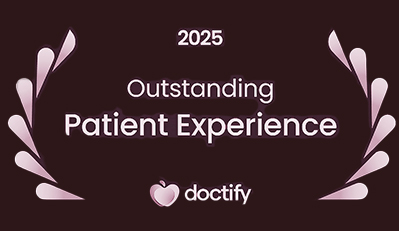
What can you not do after lens replacement surgery?
Lens replacement surgery can transform your vision—but proper aftercare is key to a smooth recovery.
So, what can’t you do after the procedure?
In this blog, we’ll break down what to avoid during your healing period and how to protect your eyes while they recover.
What is lens replacement surgery?
Lens replacement surgery, or refractive lens exchange, replaces your eye’s natural lens with a clear, artificial one to correct your vision.
It’s similar to cataract surgery, and most people return to normal life quickly—but there are a few important restrictions during the early days and weeks.
1. Don’t rub or touch your eye
This is one of the most important rules. Your eye will be healing and may feel slightly itchy or sensitive—but avoid touching it.
Rubbing your eye can:
- Introduce bacteria and increase the risk of infection
- Disrupt the healing incision
- Affect the position of the new lens.
Use your prescribed drops to manage any discomfort, and wear your eye shield as instructed—especially when sleeping.
2. Avoid heavy lifting or strenuous exercise
For the first 1 to 2 weeks, avoid:
- Gym workouts
- Lifting anything heavy
- Bending over or straining
These activities can increase pressure inside the eye, which may interfere with healing.
Gentle walking is fine, but wait until your surgeon clears you before resuming full activity.
3. Don’t drive right away
You’ll need to wait until your vision has stabilised and you’ve passed the legal vision standard. This is usually within a few days.
4. No swimming or hot tubs
Pools, hot tubs, and saunas carry a higher risk of introducing bacteria to your healing eye.
Avoid them for at least 2 weeks—even if you feel well. The risk of infection is highest during the early recovery period.
5. Avoid makeup around the eyes
Skip mascara, eyeliner, and other eye makeup for at least 1 week.
These products can:
- Irritate the eye
- Introduce bacteria
- Interfere with the healing process.
Once you’re cleared to resume makeup, be gentle and use clean applicators.
6. No dusty or dirty environments
Avoid gardening, construction sites, or environments where debris or dust might get into your eye.
If you must be in such an area, wear protective eyewear.
7. Don’t skip your eye drops
After surgery, you’ll be prescribed eye drops to:
- Reduce inflammation
- Prevent infection
- Support healing.
Use them exactly as prescribed. Missing doses can delay healing or increase the risk of complications.
8. Avoid contact sports
Protect your eye from knocks or impacts. Sports like football, rugby, boxing, or racquet sports should be avoided for at least 4 weeks, unless advised otherwise.
9. No long screen sessions at first
For the first few days, limit screen time. Staring at phones or computers can dry out your eyes and make early discomfort worse.
Use artificial tears and follow the 20-20-20 rule: Every 20 minutes, look 20 feet away for 20 seconds.
What can you do?
You’ll be able to:
- Walk and move around the house
- Read or watch TV in moderation
- Rest and relax
- Use prescribed drops
- Attend follow-up appointments.
Most people return to light activity within a day or two.
When will everything be back to normal?
Your vision should improve steadily over the first few days, with full recovery in about 4 to 6 weeks.
You’ll have follow-ups to make sure everything is on track—and you can gradually resume normal activities as advised.
Take our quick self-test to find out if lens replacement is right for you—and get personalised recovery guidance.
Find out if you are suitable for vision correction
Not everyone is eligible for vision correction surgery.
Find out if you could benefit from this life changing surgery by taking the quick self-suitability quiz below:




